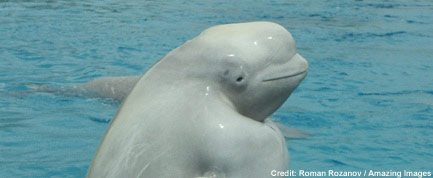Global Warming Threatens Whales, Report Warns

Get the world’s most fascinating discoveries delivered straight to your inbox.
You are now subscribed
Your newsletter sign-up was successful
Want to add more newsletters?

Delivered Daily
Daily Newsletter
Sign up for the latest discoveries, groundbreaking research and fascinating breakthroughs that impact you and the wider world direct to your inbox.

Once a week
Life's Little Mysteries
Feed your curiosity with an exclusive mystery every week, solved with science and delivered direct to your inbox before it's seen anywhere else.

Once a week
How It Works
Sign up to our free science & technology newsletter for your weekly fix of fascinating articles, quick quizzes, amazing images, and more

Delivered daily
Space.com Newsletter
Breaking space news, the latest updates on rocket launches, skywatching events and more!

Once a month
Watch This Space
Sign up to our monthly entertainment newsletter to keep up with all our coverage of the latest sci-fi and space movies, tv shows, games and books.

Once a week
Night Sky This Week
Discover this week's must-see night sky events, moon phases, and stunning astrophotos. Sign up for our skywatching newsletter and explore the universe with us!
Join the club
Get full access to premium articles, exclusive features and a growing list of member rewards.
Whales, dolphins and porpoises are joining the long list of animals facing threats from climate change, according to a new report issued by two animal advocacy groups.
“Whales, dolphins and porpoises have some capacity to adapt to their changing environment,” said Mark Simmonds of the Whale and Dolphin Conservation Society. “But the climate is now changing at such a fast pace that it is unclear to what extent whales and dolphins will be able to adjust, and we believe many populations to be very vulnerable to predicted changes.”
All three of these mammals belong to an order of mammals called cetaceans, known for the shape of their bodies, the blubber that keeps them warm and their intelligence.
Because the impact of global warming is currently greatest at the Earth’s poles, cetaceans that rely on polar, icy waters to for their habitat and food—such as belugas, narwhals (the creatures of unicorn legends) and bowhead whales—are likely to suffer most. Here's why:
Krill, tiny shrimp-like animals that are a major food source of whales, live under Antarctic sea ice during the winter. As the sea ice cover has diminished, scientists have observed massive decline in krill populations, threatening the whales’ food supply.
Reduced sea ice cover in the Arctic opens the polar oceans to more commercial shipping and oil, gas and mining exploration in previously untouched areas.
“This will result in much greater risks from oil and chemical spills, worse acoustic disturbance, and more collisions between whales and ships,” said World Wildlife Fund’s Wendy Elliot, lead author of the report.
Get the world’s most fascinating discoveries delivered straight to your inbox.
Global warming could also threaten cetaceans through warmer ocean temperatures, the acidification of the ocean as it absorbs the increasing amounts of carbon dioxide in the atmosphere, increased susceptibility to disease and reduced reproductive success.
The survival of the last 300 endangered North Atlantic right whales has been directly related to the effects of climate variability, which has killed off much of whale’s prey.
Scientists have also warned that climate change may threaten several other animals, including:
- Polar bears, because they live on the sea ice that is melting away.
- Many species of migratory birds, which depend on seasons to time their migrations
- Amphibians, because they suffer from a skin fungus that may be spurred on by climate change.
- Some fish species are declining as warming seas are depleted of oxygen, leaving the fish gasping for breath.

Andrea Thompson is an associate editor at Scientific American, where she covers sustainability, energy and the environment. Prior to that, she was a senior writer covering climate science at Climate Central and a reporter and editor at Live Science, where she primarily covered Earth science and the environment. She holds a graduate degree in science health and environmental reporting from New York University, as well as a bachelor of science and and masters of science in atmospheric chemistry from the Georgia Institute of Technology.
 Live Science Plus
Live Science Plus










